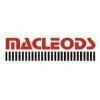Quality Control Analyst
10+ Quality Control Analyst Interview Questions and Answers for Freshers

Asked in Dhandhania Infotech

Q. What is operating system, how many types to connect desktop to internet
An operating system is a software that manages computer hardware and software resources. There are several ways to connect desktop to internet.
Operating system is the backbone of a computer system.
It manages computer hardware and software resources.
Examples of operating systems are Windows, macOS, Linux, etc.
To connect a desktop to the internet, one can use Ethernet cable, Wi-Fi, or cellular network.
Ethernet cable provides a wired connection, Wi-Fi provides a wireless connect...read more

Asked in Annora Pharma

Q. What is tablet, tablet desintigration time
Tablet is a solid dosage form of medication. Tablet disintegration time is the time taken for a tablet to break down into smaller particles.
Tablets are made by compressing a mixture of active ingredients and excipients.
Disintegration time is important for drug absorption and efficacy.
Factors affecting disintegration time include tablet composition, size, and shape.
Disintegration time can be measured using various methods such as USP apparatus or disintegration testers.
Example...read more

Asked in Annora Pharma

Q. What is HPLC and what are its different parts and their uses?
HPLC is a high-performance liquid chromatography used for separating, identifying, and quantifying components in a mixture.
HPLC consists of a pump, injector, column, detector, and data system.
The pump is used to deliver the mobile phase at a constant flow rate.
The injector is used to introduce the sample into the mobile phase.
The column is where the separation of components occurs.
The detector is used to detect the separated components and generate a signal.
The data system is...read more

Asked in Lupin

Q. What is the principle of HPLC?
HPLC stands for High Performance Liquid Chromatography. It is a technique used to separate, identify, and quantify components in a mixture.
HPLC uses a stationary phase and a mobile phase to separate components based on their chemical properties.
The stationary phase is typically a solid or liquid packed into a column, while the mobile phase is a liquid that flows through the column.
Components in the mixture interact differently with the stationary and mobile phases, causing th...read more

Asked in Lupin

Q. What is Lambert-Beer's Law?
Lambert Beer's law relates the concentration of a solution to the amount of light absorbed by the solution.
The law states that the absorbance of a solution is directly proportional to its concentration and the path length of the light through the solution.
It is commonly used in spectrophotometry to determine the concentration of a substance in a solution.
The law assumes that the solution is homogeneous, the absorbing species is in a single form, and the incident light is mono...read more

Asked in Dhandhania Infotech

Q. Explain the remote desktop process.
Remote desktop process allows users to access and control a computer from a remote location.
Remote desktop process enables users to connect to a computer remotely and control it as if they were physically present.
It involves using a client software on the local computer to establish a connection with the remote computer.
The remote computer must have the necessary server software installed and configured to accept remote connections.
Once connected, the user can view the remote...read more
Quality Control Analyst Jobs




Asked in Macleods Pharmaceuticals

Q. What is the number of gram equivalents of solute dissolved in one liter of solution?
The number of grams of solute dissolved in one liter of solution is known as the concentration of the solution.
Concentration is typically expressed in units such as grams per liter (g/L) or molarity (mol/L).
To calculate concentration, divide the mass of the solute by the volume of the solution.
For example, if 10 grams of salt are dissolved in 1 liter of water, the concentration of the solution is 10 g/L.

Asked in Lupin

Q. What is the principle of GC?
GC stands for Gas Chromatography. Its principle is based on the separation of components of a mixture based on their partitioning between a stationary phase and a mobile phase.
GC separates components of a mixture based on their partitioning between a stationary phase and a mobile phase
It involves injecting a sample into a heated inlet, vaporizing it and then separating the components using a column
The separated components are then detected and analyzed based on their retentio...read more
Share interview questions and help millions of jobseekers 🌟


Asked in Sun Pharmaceutical Industries

Q. The number of grams equivalent to solute that is dissolved in one litre solution
Molarity is the number of grams of solute dissolved in one liter of solution.
Molarity is a unit of concentration in chemistry
It is calculated by dividing the number of moles of solute by the volume of the solution in liters
For example, if 0.5 moles of NaCl are dissolved in 1 liter of water, the molarity would be 0.5 M

Asked in Nielsen

Q. Describe a complex Google Sheets formula you've created that combines date, month, and SUMIF functions.
Learn to use Google Sheets for date-based calculations with SUMIF and other functions.
Use SUMIF to sum values based on criteria, e.g., =SUMIF(A:A, "2023-01-01", B:B) sums values in B where A is Jan 1, 2023.
Combine with MONTH function: =SUMIF(A:A, MONTH(A:A)=1, B:B) sums values in B for January.
Use DATE function for dynamic date ranges: =SUMIF(A:A, ">="&DATE(2023,1,1), B:B) for values from Jan 1, 2023.
For monthly totals, use ARRAYFORMULA: =ARRAYFORMULA(SUMIF(MONTH(A:A), {1,2,3...read more

Asked in Baramati Agro

Q. What is the definition of Normality?
Normality refers to the state of being normal or typical within a certain context.
Normality can refer to statistical normality, where data follows a normal distribution curve.
In chemistry, normality is a measure of concentration of a solution.
Normality can also refer to the state of being mentally or physically healthy.
In social contexts, normality can refer to conforming to societal norms and expectations.

Asked in Cipla

Q. Define pH.
pH is a measure of the acidity or alkalinity of a solution on a scale of 0 to 14.
pH stands for 'potential of Hydrogen'
It measures the concentration of hydrogen ions in a solution
A pH of 7 is considered neutral, below 7 is acidic, and above 7 is alkaline
Examples: Lemon juice has a pH of around 2, pure water has a pH of 7, and baking soda has a pH of around 9

Asked in Lupin

Q. Quality control About product
Quality control is essential to ensure that products meet standards and specifications before reaching customers.
Quality control involves inspecting, testing, and sampling products to ensure they meet quality standards.
It also involves identifying and resolving any defects or issues in the production process.
Quality control helps to prevent defects, improve processes, and ultimately enhance customer satisfaction.
Examples: conducting visual inspections, performing product test...read more

Asked in Zydus Lifesciences

Q. Types of titration
Types of titration include acid-base titration, redox titration, complexometric titration, and precipitation titration.
Acid-base titration involves the neutralization of an acid with a base or vice versa.
Redox titration involves a redox reaction between the analyte and titrant.
Complexometric titration involves the formation of a complex between the analyte and titrant.
Precipitation titration involves the formation of a precipitate between the analyte and titrant.
Interview Questions of Similar Designations
Interview Experiences of Popular Companies






Calculate your in-hand salary
Confused about how your in-hand salary is calculated? Enter your annual salary (CTC) and get your in-hand salary


Reviews
Interviews
Salaries
Users










